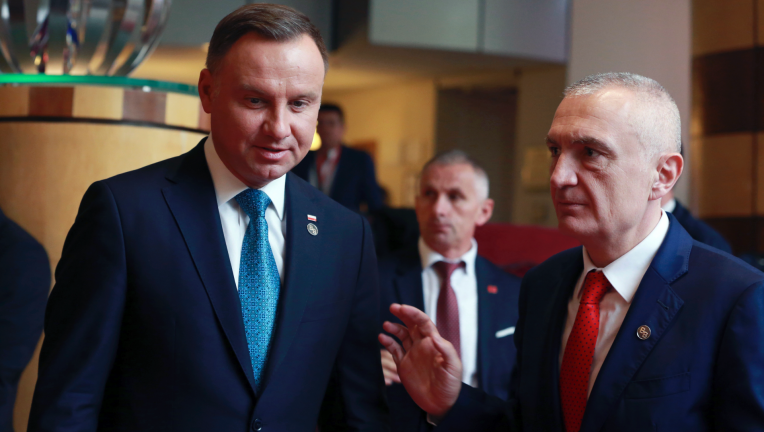
FILE PHOTO: Villagers travel in a tractor on a newly built road in Hambantota, Sri Lanka March 24, 2019. REUTERS/Dinuka Liyanawatte
May 10, 2019
By Shihar Aneez
COLOMBO (Reuters) – Sri Lanka’s economic growth is expected to slump to a near two-decade low this year, a Reuters poll showed, as tourism, foreign investment and overall business activity eased sharply in the wake of the devastating Easter Sunday bombings.
Security in Sri Lanka has been ramped up since the April 21 attacks by Islamic militants, who killed over 250 people including 42 foreign nationals in churches and hotels across the country. Tourism, which accounts for 5 percent of the country’s gross domestic product, has suffered as travelers from around the globe canceled hotel and flight bookings fearing more attacks.
Islamic State has claimed responsibility for the attacks.
The poll of 10 analysts predicted that the full-year median economic growth could slide to 2.5 percent, its lowest since 2001, when the Indian Ocean island’s growth contracted after Tamil Tiger rebels attacked the country’s main airport.
That compares with gross domestic product growth of 3.2 percent in 2018, the weakest in 17 years as a weeks-long political crisis and past policy tightenings sapped business confidence and cooled investment.
Some of the analysts in the poll are forecasting a contraction in the second quarter.
Many analysts said their revised growth figures were only a preliminary estimate as they are yet to incorporate all of the latest available data in their economic models.
“We expect the second-quarter growth to be either zero or negative,” said Dimantha Mathew, research head, First Capital Holdings.
“Consumer goods and retail sectors will be considerably hit. “This is going to have a big impact on the tourism sector and that will have an impact on the balance-of-payments.”
The central bank has estimated about 4 percent growth for this year, but it hasn’t given any official estimate following the attacks.
Central bank officials were not immediately available for comments.
In its last monetary policy review on April 8, the central bank said it is likely to cut rates in the next meeting scheduled for later this month to boost the growth.
“If there is a rate cut, then there could be foreign outflows from government securities,” Mathew said.
Government finances were shaky even before the bombings, and the island nation has a heavy external debt repayment schedule between 2019 and 2022.
The International Monetary Fund (IMF) reached an agreement with Sri Lanka in March to extend a $1.5 billion loan facility for an extra year. Meanwhile, Prime Minister Ranil Wickremesinghe’s government has boosted state spending in a 2019 budget to support the economy and woo voters before two key elections.
A presidential vote is expected later this year followed by a general election in 2020.
(Reporting by Shihar Aneez, Writing by Shri Navaratnam, Editing by Sherry Jacob-Phillips)

